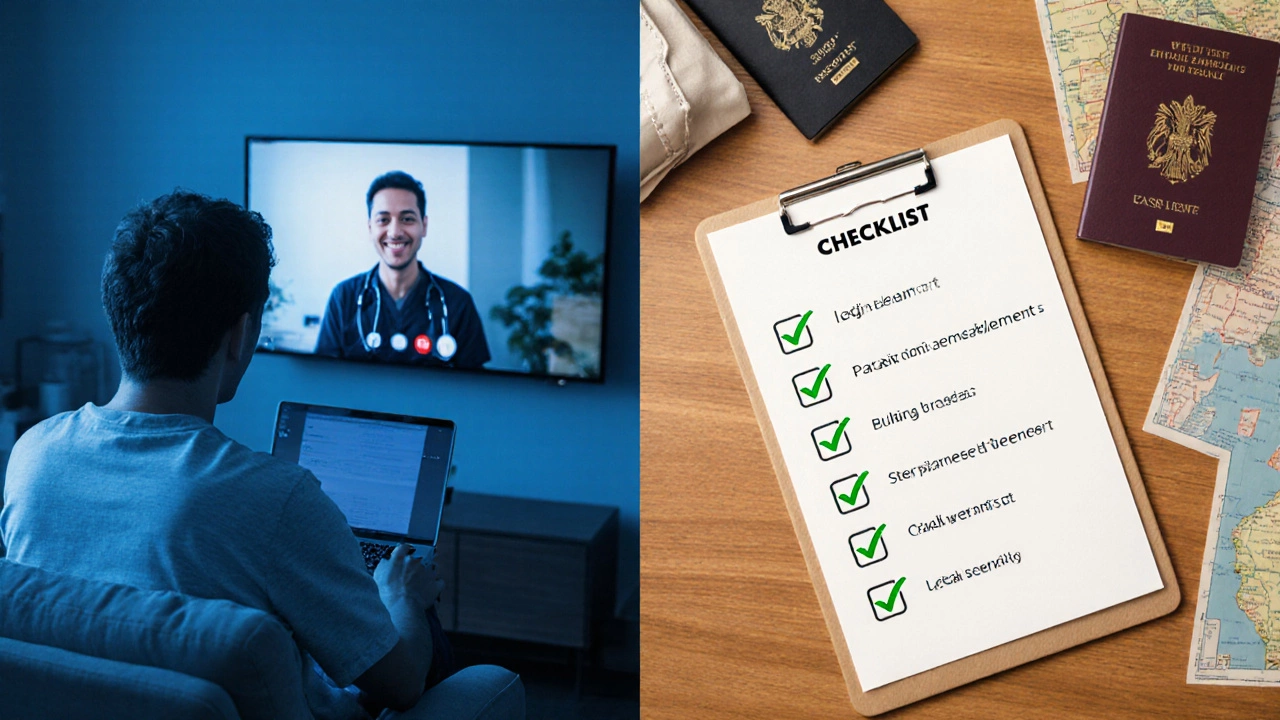In 2023, more than 14 million people traveled abroad for health‑related services, and that number keeps climbing. But stepping onto a plane with a surgery plan in mind raises a simple, yet crucial question: health tourism legal?
Below, we untangle the maze of laws, regulations, and practical steps that determine whether your medical trip is above board-or a legal gamble.
What is Health Tourism?
Health tourism is a form of travel where individuals cross international borders chiefly to obtain medical, dental, or wellness services that are unavailable, unaffordable, or delayed in their home country. It overlaps with medical tourism, which focuses specifically on clinical procedures such as surgery, fertility treatment, or cancer care.
Why Legal Issues Matter
Legal uncertainties can affect everything from insurance claims to post‑procedure follow‑up. If the treatment you receive isn’t recognized by your home nation’s health authority, you might face denied reimbursements, limited recourse for malpractice, or even immigration complications.
Key Legal Players and Concepts
- International patient - the individual seeking care abroad; their rights often hinge on bilateral agreements.
- Travel medical insurance - policies that cover complications, repatriation, and sometimes the procedure itself.
- Accreditation - certifications like Joint Commission International (JCI) that signal quality and safety standards.
- World Health Organization (WHO) - provides guidelines for cross‑border health services but does not enforce law.
- EU Directive on Patients' Rights - grants EU citizens the right to seek care in any member state and be reimbursed.
- Visa regulations - some countries require medical visas that specify allowed procedures.
- Cross‑border healthcare - the broader policy area that includes health tourism, telemedicine, and patient mobility.

Legal Landscape by Region
| Region | Regulatory Framework | Reimbursement Possibility | Key Restrictions | Typical Accreditation |
|---|---|---|---|---|
| European Union | EU Directive on Patients' Rights | Up to 80 % of EU‑average cost, subject to prior approval | Only procedures covered by the home country's health system; must be medically necessary | JCI, ISO 9001 |
| United States | State‑by‑state regulations; no federal health‑tourism law | Generally none; private insurers may cover if pre‑approved | FDA‑approved facilities; visa must specify medical purpose | JCI, ACHS |
| India | National Health Policy 2017 + Medical Tourism Promotion Board guidelines | Private insurers often cover; government subsidies for certain treatments | Prohibited for organ transplants without bilateral agreement | JCI, NABH |
| Thailand | Tourism Authority of Thailand (TAT) medical‑tourism licensing | Rarely reimbursed by home insurers; some public schemes emerging | Must obtain medical visa; limited to accredited hospitals | JCI, HISO 9001 |
Step‑by‑Step Checklist to Stay Legal
- Verify the destination country's licensing requirements for the procedure you need.
- Confirm the facility’s accreditation (look for JCI, ISO, or national equivalents).
- Check whether your home health insurance or private insurer offers cross‑border coverage; obtain written pre‑approval.
- Apply for the appropriate visa-most countries issue a "medical visa" that specifies allowed treatments.
- Ask for a detailed treatment plan, including post‑operative care, and ensure it complies with any home‑country reporting rules.
- Arrange for a qualified local physician to receive your medical records and oversee follow‑up after you return.
- Keep all receipts, consent forms, and discharge summaries for potential reimbursement claims.
Common Pitfalls and How to Avoid Them
- Assuming all foreign clinics are regulated. Look for explicit accreditation; unaccredited centers may not be subject to any national oversight.
- Skipping pre‑approval from your insurer. Many policies void coverage the moment you seek treatment abroad without prior sign‑off.
- Ignoring post‑treatment follow‑up. Complications that arise after you return can be classified as “non‑covered” if no local doctor is involved.
- Misunderstanding visa limits. Overstaying or performing prohibited procedures can lead to deportation and legal fines.
- Under‑estimating travel‑related risks. Long flights after surgery increase clotting risk; arrange medical clearance before departure.

Pro Tips from Industry Experts
• Consult a medical‑tourism facilitator who specializes in legal compliance; they can vet facilities and handle paperwork.
• Ask for patient testimonials that specifically mention legal clarity and insurance reimbursement.
• Use a reputable travel‑medical insurance provider that offers “repatriation” coverage-this is essential if complications require return to your home country.
Next Steps for Prospective Travelers
If you’re ready to explore a health‑tourism option, start with these three actions:
- Identify three accredited hospitals in your target country and compare their legal compliance via the checklist above.
- Contact your insurer’s international care department to discuss coverage limits and obtain a written pre‑approval.
- Schedule a tele‑consultation with a local physician at the destination hospital to review your medical history and confirm suitability.
Frequently Asked Questions
Is health tourism illegal in most countries?
No. Most countries permit health tourism, but the activity is regulated through licensing, accreditation, and visa rules. Illegality usually stems from performing prohibited procedures (e.g., organ trade) or lacking proper documentation.
Can I claim reimbursement from my NHS insurance for treatment abroad?
Under the EU Directive, UK residents (post‑Brexit) can only claim reimbursement if the treatment is covered by the NHS and you have prior approval. Private insurers may be more flexible, but you must provide detailed invoices and evidence of accreditation.
Do I need a special medical visa?
Many countries issue a "medical visa" that outlines the allowed procedures and duration of stay. Applying for a tourist visa without indicating medical purpose can lead to entry denial or later legal trouble.
What happens if I experience complications after returning home?
You’ll need a local doctor to document the complications and provide treatment. If your insurer approved the overseas procedure, they may cover follow‑up care, but only if you have proper records and a clear line of communication with the foreign provider.
Are there any countries where health tourism is completely unrestricted?
No country offers a completely unregulated environment. Even popular destinations like Thailand or India require accredited facilities, medical visas, and compliance with local health ministry standards.
Understanding the legal framework before you book a procedure can mean the difference between a smooth recovery and a legal nightmare. Use the checklist, verify accreditation, and secure proper insurance-you’ll travel with confidence, not anxiety.
